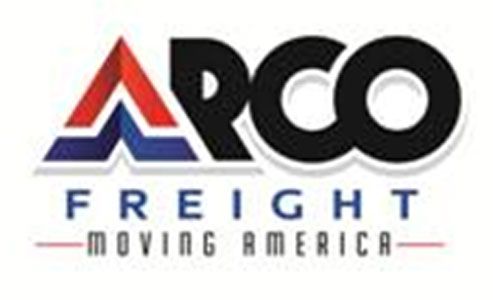Why Local Freight Brokers Are Key to Your Business Success
In the complex web of global commerce, businesses are constantly seeking efficient and reliable solutions to navigate the intricacies of transportation logistics. One indispensable ally in this journey is the freight broker. These intermediaries play a pivotal role in connecting businesses with carriers, facilitating the movement of goods from point A to point B seamlessly. While the concept of freight brokerage is not new, the emphasis on local expertise has emerged as a game-changer in recent times. In this article, we delve into why local freight brokers near me are crucial for businesses aiming to optimize their supply chain operations and achieve sustainable growth.
Understanding the Role of Freight Brokers
To grasp the significance of local freight brokers, it's essential to first understand the fundamental role they play in the transportation industry. At its core, freight brokerage involves the coordination and management of shipments on behalf of businesses. Whether it's arranging truckload deliveries, coordinating air freight shipments, or navigating complex customs procedures, freight brokers act as intermediaries between shippers and carriers, ensuring that goods reach their destination efficiently and cost-effectively.
One of the primary advantages of working with freight brokers is their ability to leverage their extensive networks and industry knowledge to secure the best transportation solutions for their clients. By tapping into a vast pool of carriers and negotiating favorable rates, freight brokers can help businesses optimize their shipping processes and minimize costs. Moreover, freight brokers often have access to advanced logistics technology and software, allowing for real-time tracking and monitoring of shipments, further enhancing visibility and control over the supply chain.
The Significance of Local Presence
While the benefits of freight brokerage are evident, the importance of local expertise cannot be overstated. In an increasingly interconnected world, where supply chains span continents, having a local presence can provide businesses with a competitive edge. Local freight brokers near me offer a deep understanding of the regional market dynamics, regulatory requirements, and logistical challenges, enabling them to navigate these complexities with ease.
In addition to their intimate knowledge of the local landscape, local freight brokers also boast extensive networks of carriers and industry contacts within their respective regions. This local expertise allows them to tap into a diverse range of transportation options and secure the most efficient and cost-effective solutions for their clients. Whether it's arranging last-mile deliveries or navigating congested urban areas, local freight brokers possess the insights and connections needed to ensure timely and reliable transportation services.
Moreover, working with local freight brokers fosters a sense of trust and accountability, as businesses can rely on their proximity and accessibility to address any issues or concerns that may arise during the shipping process. This personalized approach not only enhances the overall customer experience but also strengthens the bond between businesses and their logistics partners, laying the foundation for long-term partnerships based on mutual trust and collaboration.
Cost-Effectiveness and Efficiency
In addition to their local expertise, local freight brokers near me offer significant cost-saving opportunities for businesses. By leveraging their knowledge of the local market and negotiating favorable rates with carriers, local brokers can help businesses reduce their shipping costs and optimize their transportation budgets. Whether it's consolidating shipments, optimizing routes, or minimizing empty backhaul miles, local freight brokers employ a range of strategies to drive efficiency and maximize cost savings for their clients.
Furthermore, local freight brokers play a crucial role in streamlining the
shipping process, eliminating bottlenecks, and reducing lead times. By coordinating closely with carriers and other stakeholders, local brokers ensure that shipments are picked up and delivered on time, minimizing delays and disruptions in the supply chain. This operational efficiency not only enhances the overall productivity of businesses but also enables them to meet the ever-increasing demands of today's fast-paced marketplace.
Personalized Service and Communication
In the dynamic world of freight logistics, personalized service and clear communication are paramount. This is where local freight brokers near me truly shine. Unlike large, impersonal brokerage firms, local brokers offer a level of personalized attention and customization that is unparalleled. They take the time to understand the unique needs and requirements of each client, tailoring their services to meet those specific demands.
From the initial consultation to the final delivery, local freight brokers serve as trusted advisors, guiding businesses through every step of the shipping process. Whether it's selecting the most suitable carriers, optimizing shipping routes, or providing real-time updates on shipment status, local brokers go above and beyond to ensure a seamless and hassle-free experience for their clients.
Moreover, the proximity and accessibility of local freight brokers enable direct and transparent communication channels. Businesses can easily reach out to their brokers for updates, inquiries, or any unforeseen issues that may arise. This open line of communication fosters trust and confidence, allowing businesses to rest assured that their shipments are in capable hands.
Flexibility and Adaptability
In today's rapidly changing business environment, agility and adaptability are essential qualities for success. Local freight brokers near me excel in this regard, thanks to their deep understanding of the local market dynamics and their ability to navigate regulatory hurdles and logistical challenges with ease.
Whether it's adjusting shipping schedules to accommodate changing production timelines or finding alternative transportation solutions in the face of unexpected disruptions, local brokers are adept at responding swiftly and effectively to evolving business needs. Their flexibility enables businesses to stay nimble and resilient in the face of uncertainty, ensuring that they can adapt to whatever challenges come their way.
Furthermore, local brokers have the advantage of being deeply entrenched in their communities, allowing them to forge strong relationships with carriers, suppliers, and other key stakeholders. This network of connections gives local brokers the flexibility to access a wide range of resources and expertise, enabling them to find creative solutions to even the most complex logistical challenges.
Building Long-Term Partnerships
Establishing enduring partnerships is not just about completing transactions; it's about fostering trust, reliability, and mutual growth. Local freight brokers near me understand this principle well and strive to go beyond mere service provision, aiming instead to become indispensable strategic partners in their clients' supply chain operations.
Establishing Trust and Reliability
- Consistent Performance: Local freight brokers build trust through consistent performance and reliability. By delivering on promises, meeting deadlines, and ensuring the safe and timely delivery of goods, they earn the confidence of their clients.
- Transparent Communication: Trust is also nurtured through transparent communication. Local brokers keep clients informed at every stage of the shipping process, providing updates, addressing concerns promptly, and being upfront about any challenges or delays.
- Track Record of Success: Local brokers establish trust by demonstrating a track record of success. Through testimonials, case studies, and referrals, they showcase their ability to deliver results and exceed client expectations consistently.
Growing Alongside Local Businesses
- Understanding Client Needs: Local freight brokers take the time to understand their clients' businesses intimately. By gaining insights into their clients' operations, challenges, and goals, they can tailor their services to meet their specific needs and objectives.
- Scalability and Flexibility: As businesses evolve and grow, local brokers adapt their services to accommodate changing needs. Whether it's scaling up operations to handle increased volumes or adjusting strategies to align with shifting priorities, local brokers offer the flexibility needed to support their clients' growth trajectory.
- Strategic Guidance: Local brokers provide strategic guidance and counsel to help their clients navigate market trends, regulatory changes, and other challenges. By staying abreast of industry developments and leveraging their expertise, they empower clients to make informed decisions that drive long-term success.
The Value of Long-Term Partnerships in Freight Logistics
- Cost Savings: Long-term partnerships with local freight brokers yield significant cost savings over time. By consolidating shipments, optimizing routes, and leveraging economies of scale, businesses can reduce their transportation costs and improve their bottom line.
- Operational Efficiency: Partnering with a trusted local broker streamlines logistics operations, improves efficiency, and reduces administrative burdens. With a dedicated partner managing their shipping needs, businesses can focus their time and resources on core activities, driving productivity and profitability.
- Innovation and Continuous Improvement: Long-term partnerships foster a culture of innovation and continuous improvement. By working closely with clients to identify opportunities for optimization and innovation, local brokers help businesses stay ahead of the curve and remain competitive in a rapidly evolving marketplace.
Conclusion
In conclusion, local freight brokers near me, such as Arco Freight in Jerome, ID, are invaluable allies for businesses seeking to optimize their supply chain operations and achieve sustainable growth. With our deep understanding of the local market, personalized service, flexibility, and commitment to building long-term partnerships, we offer a distinct advantage in today's competitive business landscape.
By leveraging the expertise and resources of local freight brokers like us, businesses can streamline their shipping processes, minimize costs, and enhance the overall efficiency and reliability of their supply chain operations. Moreover, by forging strong relationships based on trust and collaboration, businesses can position themselves for long-term success in an increasingly complex and interconnected world.
As businesses continue to navigate the challenges and opportunities of the global marketplace, partnering with local freight brokers near me, such as Arco Freight, will undoubtedly be a key driver of success in the years to come. For exceptional freight brokerage services in Jerome, ID, contact Arco Freight at 208-324-4706.
FAQ’S










